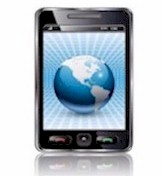|
|
DSC Tech Library
 This section of our technical library presents information and documentation relating to Internet Phone Software and Computer Telephony Integration software and products.
Computer Telephony Integration CTI software is a rich set of phone software library routines that enable application programs to control your phone system.
This comprehensive CTI software lets you increase employee productivity, enhance customer service and reduce costs by combining the capabilities of our PACER phone system with the custom functionality of your Windows, Unix or Web applications.
Data collected by your phone ACD (Automatic Call Distribution) or IVR (Interactive Voice Response) systems can be passed to your existing PC, Unix or Web applications through our phone software.
The PACER predictive dialer can automatically call your customers and pass only connected calls to your agents. With our computer telephony software, your telephone and computer work together to provide cost-saving benefits.
This section of our technical library presents information and documentation relating to Internet Phone Software and Computer Telephony Integration software and products.
Computer Telephony Integration CTI software is a rich set of phone software library routines that enable application programs to control your phone system.
This comprehensive CTI software lets you increase employee productivity, enhance customer service and reduce costs by combining the capabilities of our PACER phone system with the custom functionality of your Windows, Unix or Web applications.
Data collected by your phone ACD (Automatic Call Distribution) or IVR (Interactive Voice Response) systems can be passed to your existing PC, Unix or Web applications through our phone software.
The PACER predictive dialer can automatically call your customers and pass only connected calls to your agents. With our computer telephony software, your telephone and computer work together to provide cost-saving benefits.
Corporate World Using Internet Phone
By Matthew Fordahl, AP Technology Writer
Corporate World Already Employing High-Speed, Video Internet Phone Capabilities
Because their phones speak the language of the Internet, Boeing Corp. engineers can both hear and see each other as they remotely collaborate on projects.
Boeing began experimenting with Internet telephony in 2001 and is now spreading it, videophones included, across the far-flung aerospace and defense company.
The same technology lets brokers at Lehman Bros. pre-record voicemail messages and insert them into clients' inboxes, while the town of Herndon, Va. distributes missing children alerts -- photos and text -- to its municipal employees over their Internet Protocol phones.
At NFL Films, a Voice over Internet system makes setup easy as workers travel from stadium to stadium: Workers merely plug their phones into a network and everything from the phone number to user privileges are automatically set up. No trip to the wiring closet required.
Home adoption of Internet telephones may not be mainstream, but many corporations, government agencies and other big institutions are cautiously embracing Internet calling for its advanced features and potential cost savings.
"There's certainly a lot of interest," said Zeus Kerravala, a vice president at the Yankee Group. "But there aren't a lot of companies that have bet the farm and put all their communications on it."
A 2004 Yankee Group survey of 231 businesses found that 39 percent were using IP telephony in some form. Of those, 9 percent were testing, 25 percent were partially deployed and 5 percent were fully deployed.
Of the 113 million U.S. business handsets in use today, only 10 percent use Internet Protocol tech. But growth is accelerating: In fact, the Yankee Group estimates 50 percent of new lines shipped this year will use IP.
Some of the biggest names in corporate America have announced deployment plans, and most of them are now equipping employees with it.
Merrill Lynch plans to roll out an IP system to more than 24,000 employees around the world later this year. Bank of America Corp. said late last year it would deploy 180,000 phones.
Ford Motor Co. is working with both Cisco Systems Inc. and SBC Communications Inc. to reinvent its phones. The car maker has ordered a total of 50,000 phones as part of its upgrade.
"We're really trying to merge a lot of our different networks that we've run in the past into a single converged network," said Jeff Lemmer, Ford's manager of telecommunications.
As in the consumer world, advanced features appear to be driving a lot of the corporate phone makeovers. They include video telephony, simple setup, mobility, software-based phones and unified messaging -- a single inbox for voicemail, e-mail, faxes and other communications.
Another factor -- and major question -- is cost savings.
By eliminating the redundant voice system, businesses can focus resources just on their data network. But to support voice on a data network, considerable equipment upgrades are required.
It's been a big sales driver for Cisco, the router-and-switch company that jumped into the VoIP market during the tech downturn. Now the leading provider of Internet Protocol telephony, Cisco has 20,000 IP telephone customers worldwide and shipped 555,000 handsets in the fourth quarter alone.
Charles Giancarlo, Cisco's chief technology officer, says support costs savings are a major draw.
"(Enterprises) are looking for a low cost of operation, which is a little bit different than a consumer," he said. "If they can save on the support costs of the equipment, it's a very good deal for them because typically support is the majority of the cost."
|


 This section of our technical library presents information and documentation relating to
This section of our technical library presents information and documentation relating to